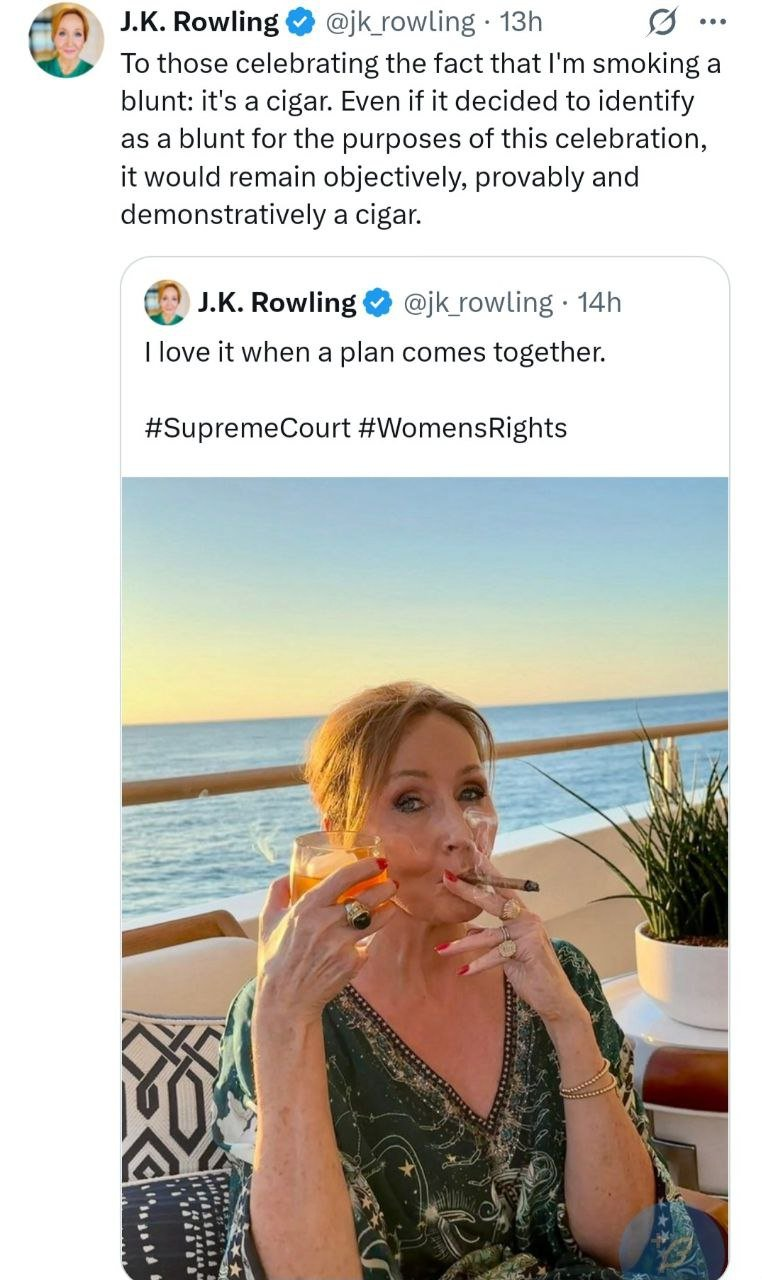

Did something happen in her past that makes her so hateful on this issue
I can’t guess as to the full extent of her transphobia, but I can point to a couple of elements of it.
She did suffer domestic abuse of some sort before and around the time the first Harry Potter book came out. This was a cis man who did it, but I think in her mind there’s no difference between cis men and trans women.
There’s also a well-studied psychological phenomenon where people tend to double-down on their prior beliefs when challenged, unless those challenges come in a very narrow form. Her earliest transphobic comments may have been her being tepid about expressing her true beliefs, but they may genuinely have been the sort of misinformed casual transphobia that a much, much wider segment of the population has which may have gone no further if she were a normal person. But because lots of well-intentioned people—largely some of her most dedicated fans—tried to educate her and help her to be better, she may have doubled down and got into the reactionary feedback loop that so many transphobes, racists, and members of the alt-right got into. They perceive constructive criticism, especially when it comes in large volumes, as a personal attack, and the people who aren’t attacking them instead encourage them to double down on their beliefs, and reward them when they do.
Her books show a very strong liberal bias. Liberal in the sense that it’s not regressive per se, but it’s also strongly opposed to analysis of problems as stemming from systemic issues rather than One Bad Actor. SPEW is the easiest to point to, but the lack of systemic change in the governance of the Wizarding World post-Voldemort is more significant, in my view. The problem was one Minister of Magic who was just ignorant of the problem of Voldemort, followed by another who actively covered it up. These individuals are the bad guys who need to be defeated. It wasn’t, as the books tell it, underlying racism and classism of wizarding culture. So it seems that Rowling is not good at spotting systemic injustice. Such as the higher suicide rates among trans people (especially if they’re not accepted), higher rates of DV and other violence, and other problems faced are not factoring into her calculations. Which makes it so much easier to cast trans people as the bad guys.
But I find it hard for these to adequately explain either the initial spark of transphobia per se, or the rather extreme extent she’s gone to. So yeah, like you I’m a little curious if there’s more to it.





It seems fair to compare Taiwan to Austria pre-1938, IMO. Not a perfect parallel for a variety of reasons, but a few obvious similarities exist.